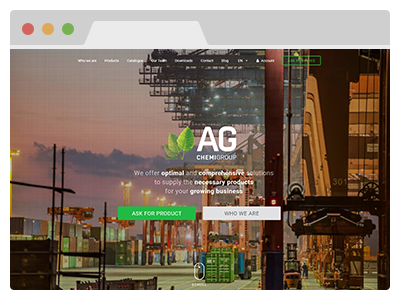 Can the UK Solve the Chemical Industry’s Brexit Challenge?
03. 09. 2018
#The Chemical Industry
Can the UK Solve the Chemical Industry’s Brexit Challenge?
03. 09. 2018
#The Chemical Industry

On June 24th, 2016, the day after the adult population of the UK voted to leave the EU, there was a surge in the number of British people Googling the phrase, “What is Brexit?”
Fast forward two years and we are still looking for a definition.
At present, Brexit means uncertainty.
This is particularly bad news for the chemical industry because business hates uncertainty. It prevents planning and inhibits investment. As the chemical industry is heavily reliant on planning and investment and is therefore likely to suffer more than other sectors.
Fortunately, the British government is working hard to find out what Brexit will mean.
What the UK Government knows about the Chemical Industry.
It certainly seems aware of the importance of the chemical industry to the British economy. As a recent British House of Commons Environmental Audit Committee reported, “The chemicals industry is the second largest exporter to the EU after the automotive industry and the second biggest manufacturing industry overall, with £10bn Gross Value Added, annual turnover of £32bn and total exports of £26bn.”
This same committee is also aware of the importance of REACH (the EU chemical safety registration system), noting that, “The most important component of the REACH system is ensuring access to the market in the registration process, which requires the registration of all chemical substances sold within the EU in quantities greater than 1 tonne.”
But if Brexit means Brexit, then what will REACH mean to the UK chemical industry post-Brexit?
One fact that does seem certain, is that maintaining a product’s REACH registration from outside of the EU may not be simple. A warning made clear by the industry journal Chemical Watch, which writes that, “Simply having an address in an EU member state will not be enough for UK companies to transfer their REACH registrations after Brexit.”
However, such is the importance of the European market to the success of British chemical products, that even if the UK’s chemical industry leaves the REACH umbrella, most chemicals will still be made REACH-friendly.
This is a point supported by the RCS (Royal Chemical Society), which notes, “The EU is an important market and the UK will need to remain compliant with REACH if UK businesses are to continue to export to the EU market. Compliance with EU regulation is likely to continue to be important once we leave the single market.” Adding that, “It is important to recognise that REACH and other EU chemicals regulations (such as CLP, PIC and product-specific regulations) are linked and cross-reference each other, relying on common data.”
This is a position that has led the House of Commons committee to recommended that, “… as a minimum, the UK should negotiate to remain a participant in this system, including paying for access if necessary. This would allow UK companies to place products onto both the UK and the EU markets without the need to generate additional testing data or incurring additional costs. Continuing to share data with the EU would allow the UK to decide whether to follow the regulatory decisions made through REACH, or whether it wishes to take a different approach. Any alternative approach which involved lower environmental or health standards than the EU, would not only expose UK consumers to greater risks, but would subject industry to the additional burdens of complying with two different sets of regulation.”
Before adding that, “Establishing a fully stand-alone system of chemicals regulation for the UK is likely to be expensive for both the taxpayer and for industry.”
Frontline Pharma
Failure to gain regulatory alignment has many industry chiefs worried. One industry that is sure to be hit adversely by Brexit uncertainty and leaving the single market is the pharmaceutical sector.
The importance of this should not be underestimated, as the industry journal Manufacturing Chemist highlights, “Pharmaceuticals are a hugely important industry for the UK, creating thousands of jobs and generating more than 10% of the country’s gross domestic product.”
Such a large provider of jobs and tax revenue has a powerful voice, and like others in the chemical industry is pressing for action to ensure that the situation after Brexit is ‘trade-friendly’. The journal also reports that, “The Chief Executive of GlaxoSmithKline, Britain’s largest drug manufacturer, counselled that the industry needed time to adjust to the coming disruption.” Adding that, “The Association of the British Pharmaceutical Industry (ABPI) warned of a ‘crisis’ scenario of drastically reduced access to European markets and hundreds of millions of pounds of restructuring costs unless a swift regulatory deal can be struck with Brussels.”
What the UK Government sees as the Future of the British Chemical Industry
Well, according to the industry journal Chemistry World, the UK government is, “… planning to publish a chemicals strategy to tackle chemicals of concern, as the country leaves the EU. It wants to develop an early warning system to identify emerging problems, track chemicals in the supply chain to boost recycling and re-use, and work internationally to standardise methods to assess the safety of chemicals. The timetable for a strategy will depend on the progress of EU negotiations.”
All of these plans have been laid out in a 25-year environment plan that repeats earlier commitments to combat persistent emissions of organic pollutants, phase out PCBs, and cut mercury emissions by 50% by 2030.
Noble planning; but some industry chiefs believe that the policy lacks both meat and bones.
“I don’t see any vision,” says Michael Warhurst, executive director of environmental charity Chem Trust. “There’s nothing in there about REACH, which makes it very problematic.” Adding that. “the logic of the EU withdrawal bill is that you copy and paste: you can’t do that with REACH.”
This could leave the UK to establish its own regulatory chemicals agency. However, many industry leaders are not keen on the set-up costs, and see it as repeating the bureaucracy that they have already been through in getting REACH ready. As Peter Newport, chief executive of the Chemical Business Association, states, “Some of the earlier noises about a UK Reach and an UK equivalent of Echa are not what the industry wants to hear: if you’re selling into someone else’s market […] they set the rules, and unless they recognise ours as the same or better, we won’t have access to that market.”
While as recently as March 7th, 2018, Chem Trust, laid out its support for maintaining UK membership of REACH. Stating, “In a speech on Friday March 2nd the UK Prime Minister Theresa May stated that the UK wished to discuss the possibility of remaining part of the EU chemicals agency ECHA after Brexit. CHEM Trust welcomes this announcement, but it is important to realise that the other EU governments (the EU27) will inevitably set specific conditions for such participation, and that the risk remains that participation may be considered ‘cherry picking’ by the EU.”
Such warnings should be heeded, as only yesterday, March 8th, were EU officials complaining that the UK’s ‘pick and mix’ hopes may not fit the EU model.
As the Guardian reports, “Unveiling the union’s guidelines on the future relationship, the president of the European council, Donald Tusk, said, “I fully understand and respect Theresa May’s political objectives to demonstrate at any price that Brexit will be a success and was the right choice.” But also added that, “I’m sorry, this is not our objective. No member state is free to pick only those sectors of the single market it likes, nor to accept the role of the ECJ only when it suits their interest. By the same token, a pick-and-mix approach for a non-member state is out of the question.”
As the story continues to unfold, it seems that we may have plenty more uncertainty.
Maybe the waters will clear more when the European Council of Members, including all 28 heads of state or government meet in Belgium on March 22nd. As both the UK and the remaining states move quickly towards the final deadline, the chemical industry can only hope that the politicians find a definition for Brexit and soon.
Client Zone – Be in Touch with All the Important Information
Take the opportunity to register in our client zone to find complete product specifications and latest updates on our offers.
Photo credit: IntelligencerPost, Daily Mirror, BlueskiesScotland, Slideshare, theDrum, Igiceri & B-loony
